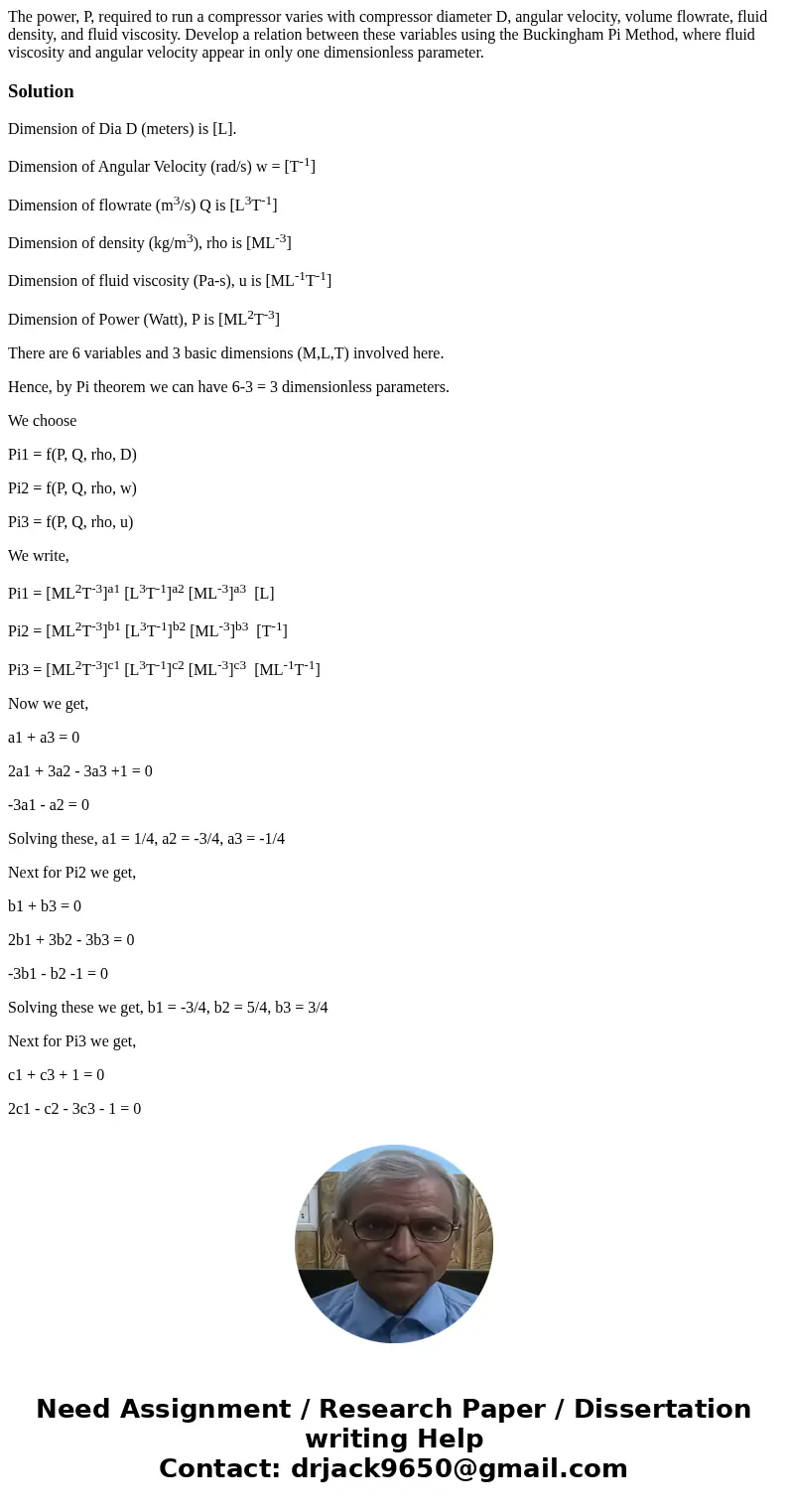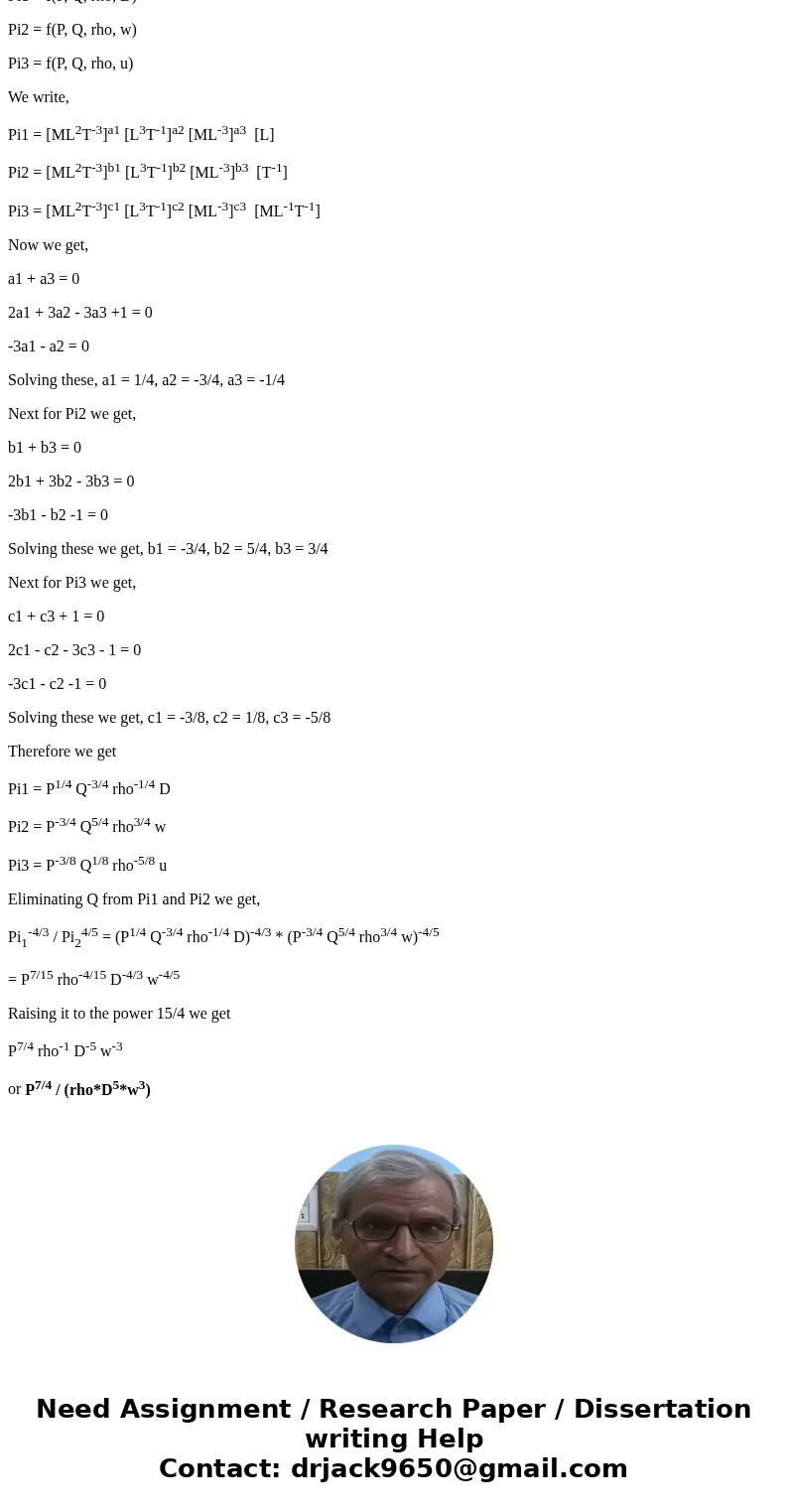The power P required to run a compressor varies with compres
The power, P, required to run a compressor varies with compressor diameter D, angular velocity, volume flowrate, fluid density, and fluid viscosity. Develop a relation between these variables using the Buckingham Pi Method, where fluid viscosity and angular velocity appear in only one dimensionless parameter.
Solution
Dimension of Dia D (meters) is [L].
Dimension of Angular Velocity (rad/s) w = [T-1]
Dimension of flowrate (m3/s) Q is [L3T-1]
Dimension of density (kg/m3), rho is [ML-3]
Dimension of fluid viscosity (Pa-s), u is [ML-1T-1]
Dimension of Power (Watt), P is [ML2T-3]
There are 6 variables and 3 basic dimensions (M,L,T) involved here.
Hence, by Pi theorem we can have 6-3 = 3 dimensionless parameters.
We choose
Pi1 = f(P, Q, rho, D)
Pi2 = f(P, Q, rho, w)
Pi3 = f(P, Q, rho, u)
We write,
Pi1 = [ML2T-3]a1 [L3T-1]a2 [ML-3]a3 [L]
Pi2 = [ML2T-3]b1 [L3T-1]b2 [ML-3]b3 [T-1]
Pi3 = [ML2T-3]c1 [L3T-1]c2 [ML-3]c3 [ML-1T-1]
Now we get,
a1 + a3 = 0
2a1 + 3a2 - 3a3 +1 = 0
-3a1 - a2 = 0
Solving these, a1 = 1/4, a2 = -3/4, a3 = -1/4
Next for Pi2 we get,
b1 + b3 = 0
2b1 + 3b2 - 3b3 = 0
-3b1 - b2 -1 = 0
Solving these we get, b1 = -3/4, b2 = 5/4, b3 = 3/4
Next for Pi3 we get,
c1 + c3 + 1 = 0
2c1 - c2 - 3c3 - 1 = 0
-3c1 - c2 -1 = 0
Solving these we get, c1 = -3/8, c2 = 1/8, c3 = -5/8
Therefore we get
Pi1 = P1/4 Q-3/4 rho-1/4 D
Pi2 = P-3/4 Q5/4 rho3/4 w
Pi3 = P-3/8 Q1/8 rho-5/8 u
Eliminating Q from Pi1 and Pi2 we get,
Pi1-4/3 / Pi24/5 = (P1/4 Q-3/4 rho-1/4 D)-4/3 * (P-3/4 Q5/4 rho3/4 w)-4/5
= P7/15 rho-4/15 D-4/3 w-4/5
Raising it to the power 15/4 we get
P7/4 rho-1 D-5 w-3
or P7/4 / (rho*D5*w3)


 Homework Sourse
Homework Sourse